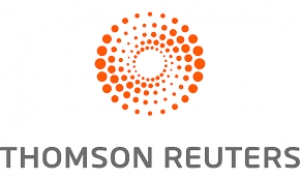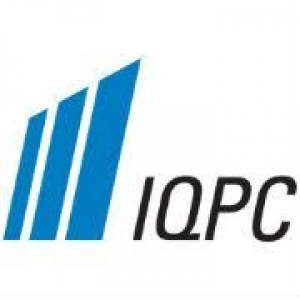Chris Potter
Charlie Swadling
Charlie has over 5 years of experience in retail and recruitment experience prior to joining ZMedia. He brings a unique blend of customer-centric approach and talent acquisition expertise to help candidates secure their best roles. With a journalism degree from the University of Winchester, Charlie understands the nuances of communication, making him adept at finding the perfect fit for both clients and candidates in the ever-evolving media landscape. Beyond his professional pursuits, Charlie is a devoted music afficionado, having developed his guitar skills for over 7 years.
This is a question we hear regularly. ZLive is one of the leading events recruitment businesses in the UK and our market penetration means we’re quick to notice the trends as they shift. Incoming requests for recruitment support increased by over 70% in H2 compare to H1 this year (2021). Our phone has been hot to touch with incoming activity, much of which is from businesses or hiring managers where we’ve had no prior dealings. This is a clear sign of pressure within our industry and a general inability to hire success, so what’s happening?
Simultaneous Pandemic Decisions
As the pandemic struck and business leaders panicked, the grads were the first to go. Many that survived weren’t quick to celebrate as they were promptly furloughed and it was their turn to panic. When your industry grinds to a halt and you’re on a 6-figure package, it’s not easy to reskill and adapt without a significant cut in remuneration that renders the prospect nigh-on impossible. This doesn’t apply to those earning less than £30k a year. These people simply moved on. The subsequent year and half since then that has passed has seen recruitment of graduates at virtually zero. As of December 2021, we can track back that there have been virtually no new talent entering media for 3 years now (if you include the bulk of those hire and released from 2019).
Simultaneous Recovery
Spring 2021 saw a mass recovery in media. Q4 2021 was the target for many B2B businesses to return to a live event environment. Those more risk averse targeted Q1 2022 to let others iron out the kinks. To ensure these events could be a success, staff were required and everyone in unison planned phased hires of sales, marketing and production professionals. Their target salary for these roles being largely £30k - £40k. But where are these people? If you entered media as a grad 2-3 years ago, you’d be looking for this amount, but then of course media hasn’t hired anyone for 2-3 years so they don’t exist in any significant volume. But what about all the people who were earning this amount prior to the pandemic? They are now all on £50k - £60k and there is a fight for their attention.
Simultaneous Hurt
Staff leaving businesses is a bitter pill at the best of times. When a staff member leaves and you’re already running a skeleton crew, each doing the job of three people, the pressure on the remainder simply doesn’t bear thinking about. In spring 2021, the mass migration started. Candidate confidence to manage the risk of moving on finally recovered to a level where this started across the board. And it developed quickly. Businesses were suffering severely from shortages (and increasing difficulties to hire replacements) and so counter-offers, unjustified promotions and counter-counter offers became the norm. The shared feeling amongst media leaders was not to allow a bad situation to become even more untenable by allowing any more staff to leave. “Lets keep people at all costs!” This is exactly what has happened. ZBusiness has regularly been involved in placing candidates that end up in a tug of war, with £40k salaries becoming £70k salaries overnight. Unimaginable two years ago, or indeed ever before except in extraordinary circumstances.
Current Situation
As of the start of 2022, good people who were on £30,000 or less before the pandemic are now enjoying significantly more. Graduates were never brought in and so there is no real marketplace for people at a more junior level. Seniors have become very senior, overnight. Mass stresses are being felt across the entire media landscape on staffing levels and stretching the remuneration boundaries to new highs. Salary norms have shifted, with graduate positions moving from £20k before the pandemic to £25k-£30k for an entry level opportunity with the ripples spreading right up the chain. This is due to countrywide staff shortages and good people can almost take their pick now. It’s a candidates market.
At the time of writing, the media industry is in a good place and there is a lot to be thankful for. B2B subscriptions and demand for educational content is continuing to grow. Ad revenues are increasing and in particular the sale of bespoke content and lead generation is at an all-time high. Events have worked out well too, with lower revenues received from more intimate webinar style events but significantly lower overheads attached (by comparison to live events) and thus improved profit margins. Now everyone needs the people in place to match the demand as the portfolio’s quickly grow again.
Solutions
We’re seeing a return in media to ‘The Grad Scheme’ within larger media owners. The choice for hiring juniors at the moment is straight forward, either raise your budgets to hire a more senior person, employ a good recruiter to advise / help do this for you, or create this individual from scratch by moulding someone with little or no experience. There is another option of course, which is to simply wait it out and hope there is a rebalancing over the next 12 months.
Employers are increasingly frustrated at not winning candidates through their door when they do find them. This is because of the variables outlined below:-
1) Agility. Three stage interviews that take three weeks+ to play out are crippling some businesses. Good people are being snapped up, on average, in 4 days at the moment! Unless essential, the big presentations are also being forfeited in favour or speed and ease to the candidate. Other companies will make it quicker and easier for this individual if you can’t, so it’s literally a race.
2) Flexibility. Some people want to work from home. Some would like to work in the office. Many would like to strike a balance between the two. Again, the more flexible businesses are winning the candidates. Those whose policies are set in concrete are struggling to have their offers accepted and are losing good candidates on a revolving cycle.
3) Career Development. More focus has shifted back to what employers can do for the candidate. Remember that companies are being interviewed too. If progression, training and general development is not plain to see, many candidates are being turned off. Businesses should make the career advancing commitments a large part of the interview process.
4) Package. As explained earlier, salaries have been significantly pushed up due to shortages. If companies don’t move with markets, they’re being left behind. An easier way to work around this is with bonus and commission. For many years, OTE was based on 40% of salary when modelling an individuals annual potential. Now, the bulk of media businesses work on a % of sales basis and an increasing number now offering OTEs based on 100% of basic. Candidates can see a clear path to literally double their salary if they hit their targets and go over that with accelerators too.
If you’d like to discuss any of the observations made here, or need support hiring or finding your next move, please do get in touch with ZMedia to arrange a chat.
By Chris Zachary
CEO, ZBusiness Limited
A recent survey of over 1,000 employees has concluded that on the whole, employees are not happy about returning to the workplace*. They overwhelmingly would not be happy to return to the office full time in the future and would much prefer a hybrid model. The reason is simple, the majority felt that they were more productive working from home and that they regained more control of the ‘work-life-balance’. They felt that they performed better for their employer when working in a less-distracted, more-focused environment.
How Does This Effect Businesses?
In essence, it doesn’t, because over 40% of employees under 35 have also conceded that they need to be seen to be progressed and to advance their career, despite over 50% not wanting to*. A term that is becoming known as ‘Presenteeism’. Due to this, the FOMO effect means that the more ambitious see a return as a regrettable, but essential part of their career development.
Most companies within media (and outside of it) now have their staff back on a rotational basis with many (such as Ascential plc) having sold a number of their original office locations accordingly. Many businesses now look toward the 2-2-1 model, whereby staff can work from home for 2 days, attend the office for 2 days and then have the last day as an individuals choice or for external meetings. Long gone are the days where every staff member needs their own desk and seat, 5 days a week.
Will Employees Revolt?
Well, that depends on the individual and perhaps therein lies the solution. Individuals. Happy staff are productive staff and are loyal staff. No two people are the same and so the more-savvy businesses leaders are considering whether a ‘one size fits all’ enforcement is really worth the aggro. If performance is the ultimate goal and this is being delivered, does it matter?
By Chris Zachary
CEO, ZBusiness Limited
*Source – unleash.io
Senior Commercial Director
I have worked with ZLive for many years and they take time to really understand my need and importantly, who would work well with me. Through the team, I have hired some of my best sales and support people. They are a real pleasure to work with and I would recommend them as excellent head-hunters and recruitment consultants.
Managing Director
ZLive have become an important partner for IQPC. Given the pace that the hiring market is moving, and the shortage of top-quality candidates, we appreciate the speed at which we get candidates through the door, the profiling that takes place before we meet them, and the responsiveness of the team.
Rail jobs
Lorem ipsum dolor sit amet, consectetur adipiscing elit. Donec bibendum efficitur posuere. Proin feugiat magna eu neque congue lacinia. Fusce fringilla varius orci vel commodo.
Electrician Jobs
Lorem ipsum dolor sit amet, consectetur adipiscing elit. Donec bibendum efficitur posuere. Proin feugiat magna eu neque congue lacinia. Fusce fringilla varius orci vel commodo.
Engineering Jobs
Lorem ipsum dolor sit amet, consectetur adipiscing elit. Donec bibendum efficitur posuere. Proin feugiat magna eu neque congue lacinia. Fusce fringilla varius orci vel commodo.
Hannah O’Callaghan
Hannah joined ZMedia in 2021 from Energizer Holdings, where she’d finished a year as a marketing executive following her degree in marketing at Oxford Brooks University. Her depth of knowledge within operational marketing made her a natural choice as ZMedia’s specialist marketing consultant. Hannah expertly helps businesses to source the most relevant marketing professionals within media and knows exactly how to help. Outside of work, Hannah is usually exploring new places, promoting the great outdoors through content on a shared photography page.
Nadia Zachary
Nadia joined Incisive Media as a Sales Executive in 2008, having completed her degree at Durham University. She quickly rose up through the ranks over 6 years, leaving as a Sales Manager in charge of recruiting and managing advertising teams for technology brands in 2014. Nadia then joined Amazon Media Group where she spent 5 years’ helping brands to maximise their exposure on one of the worlds leading e-commerce platforms. Nadia is particularly passionate about the Future of Work, and what that looks like – both to candidates and hiring managers. Her in depth of understanding of this changing landscape allows her to contribute, not just to immediate hiring needs, but to wider, forward facing recruitment strategies. In her spare time, her family, crazy dog and community work keep her busy. She can normally be won over with a glass of wine and a cheese board.










